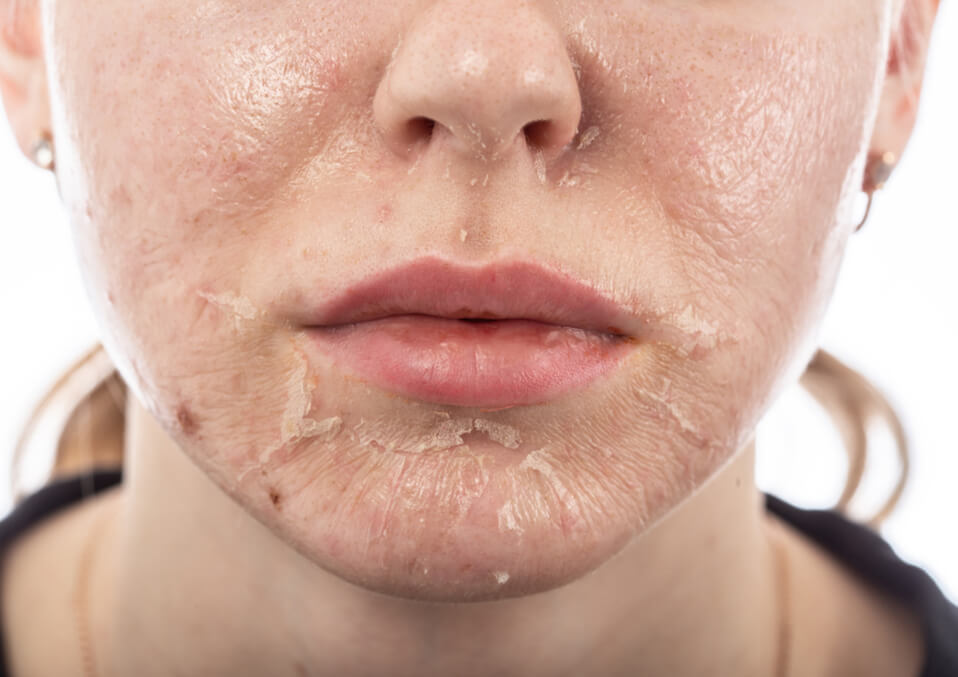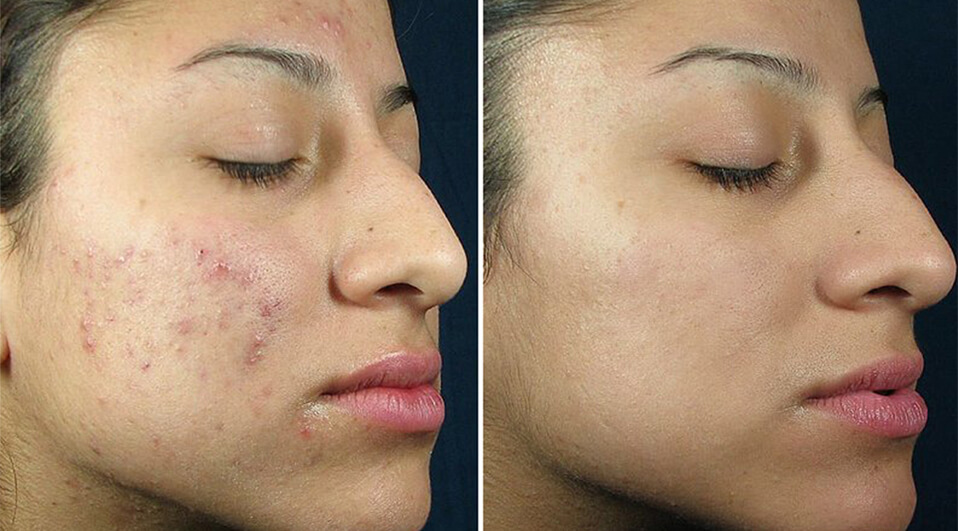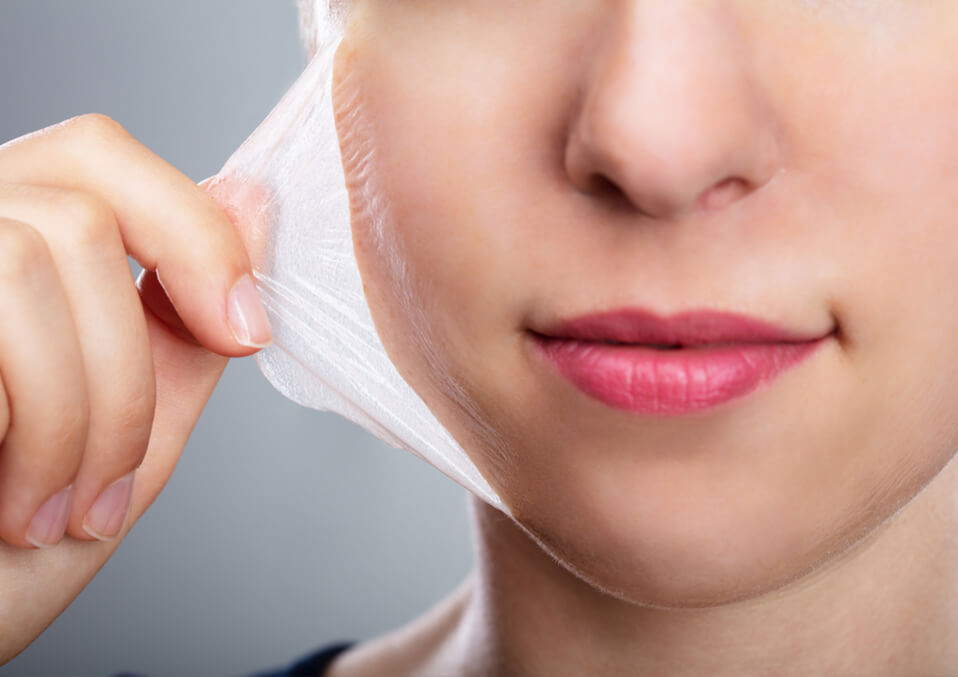
Pregnancy is a beautiful miracle until the discoloration of skin, acne, and breakout arrives due to hormones. You feel excited about your precious baby then you start to feel a little less confident about how you look.
You notice a few dark splotches and pimples popping up as if you’re a teenager again. With the many strange symptoms of pregnancy, nothing can lower a woman’s self-esteem more than feeling unattractive. So, you start looking through skin care procedures such as chemical facial peeling.
Chemical peeling is a popular skin procedure for most women who are suffering from skin discoloration and acne. It works wonders for your skin. You will experience instant skin rejuvenation as well as reduce wrinkles and blemishes. But is chemical peeling while pregnant, a safe option?
According to the Oregon Science and Health University, chemical peeling while pregnant is not a safe skincare option for women.
Here are the reasons why chemical peeling while pregnant is a risky option.
Ineffectiveness due to hormones

In some cases, skin issues can continue throughout the pregnancy. This is most likely due to the increased sensitivity of the skin during pregnancy. Chemical peeling may solve discoloration and blemishes but it will not typically last. Thanks to all the hormones in your body, chemical peeling while pregnant will only be a wasted effort.
Worse, it can cause additional breakouts due to the chemicals during the facial peel process.
Chemical peeling can worsen pigmentation

Due to the surge of hormones, pregnancy can cause Melasma –also known as the “mask fo pregnancy.” It causes dark splotches to show on your face. More often than not, it mostly appears on the nose and cheeks.
This not a cause of much concern because this is normal. Nearly 75 percent of pregnant women have experienced the mask of pregnancy. Some report dark freckles or areolas near the breast region. Chemical peeling while pregnant, can trigger the condition to worsen and cause further discoloration.
Causing more skin problems

Chemical peeling while pregnant can cause more problems rather than solve them. It can cause redness in the skin. If the chemical peel is strong then it can lead to severe redness and even scarring of the skin.
Most would prefer their skin to get better over time not worsen.
Worst-case scenario-miscarriage
It is a terrifying thought however it is a possibility you cannot rule out. You may have the urge to rid the dark spots and pimple scars but the glow is not worth the risk of miscarriage.
Some chemical peel procedures require general anesthesia, which is not safe during pregnancy. Studies have shown that anesthesia can cause spontaneous abortions, especially during the first and second trimester.
Safer alternative options for the glow
Where is that pregnancy glow everyone keeps talking about? Instead, you have low self-esteem due to pregnancy-related skin problems. You want to feel beautiful. However, your precious baby should not suffer due to vanity. There are safer options available than chemical peeling while pregnant
Here are five alternatives to make your skin glow during pregnancy:
1. Use sulfur-based topical products for acne. If breakout has gotten out of hand there is a chance that it will reoccur even after the baby is born. You can use an over-the-counter product but you need to avoid products containing benzoyl peroxide, salicylic acid, and any retinoids. Instead, opt for sulfur-based topical products containing glycolic acid or alpha hydroxy acids to lessen the bumps and blemishes.
2.Simple skincare such as cleansing and moisturizing. You do not need any cosmetic and beauty procedures to rejuvenate your skin while pregnant. Most of the time, you need to stick to the basics such as cleansing and moisturizers. Dermatologists recommend using a glycerin-based facial cleanser and a soapless rinse-off cleanser to prevent overdrying.
3. Sunscreen can save your skin while pregnant. Pregnancy can cause dark blotches on our skin so it’s best to protect your skin from the sun. Try using a moisturizer with at least SPF15 and broad-spectrum protection –both UVA and UVB rays. It’s best to use a sunscreen with SPF30 or higher. To avoid further discoloration it is best to use sunscreen daily, rain or shine you need to protect your skin.
4. You can use makeup too! If you need a quick fix to feel beautiful then look no further than makeup. Most makeup products such as your trusty eyeliner, foundation, and concealer are safe to use while pregnant. You can opt for a simple look to cover up any spots and scars or you can go big, bold, and glam depending on your style.
There are no limits to the makeup looks you can wear during your pregnancy. However, you need to avoid products that contain retinoids or salicylic acid.
5. Light chemical peels to achieve the glow. Chemical peeling while pregnant has risks but there are some products that are safe to use. Light chemical peels which include alpha-hydroxy acids, like glycolic, lactic and fruit acids are safe during pregnancy.
Chemical peeling while pregnant has risks but there are some products that are safe to use. Light chemical peels which include alpha-hydroxy acids, like glycolic, lactic and fruit acids are safe during pregnancy.
Unlike phenol chemicals peels that contain salicylic acids that are unsafe for you. Lights peels stay active for no more than five minutes and do not cause any harm to your or your precious baby. But with the unpredictability of your hormones, you should talk to your doctor if you want to want to consider this type of chemical peeling.
Don’t worry about it, mama!
Pregnancy can be overwhelming especially with all these hormones messing with your beauty. But all of these problems are temporary.
Don’t worry –you won’t be stuck with these skin problems forever! Once the baby is born, your skin will have enough time to restore its normal hormone levels and naturally heal.
Read also:
- The Roseola: Is It Detrimental To Pregnancy?
- Cellulite During Pregnancy: Prevention And Cure
- Hot Flashes During Pregnancy: How To Deal With It?


